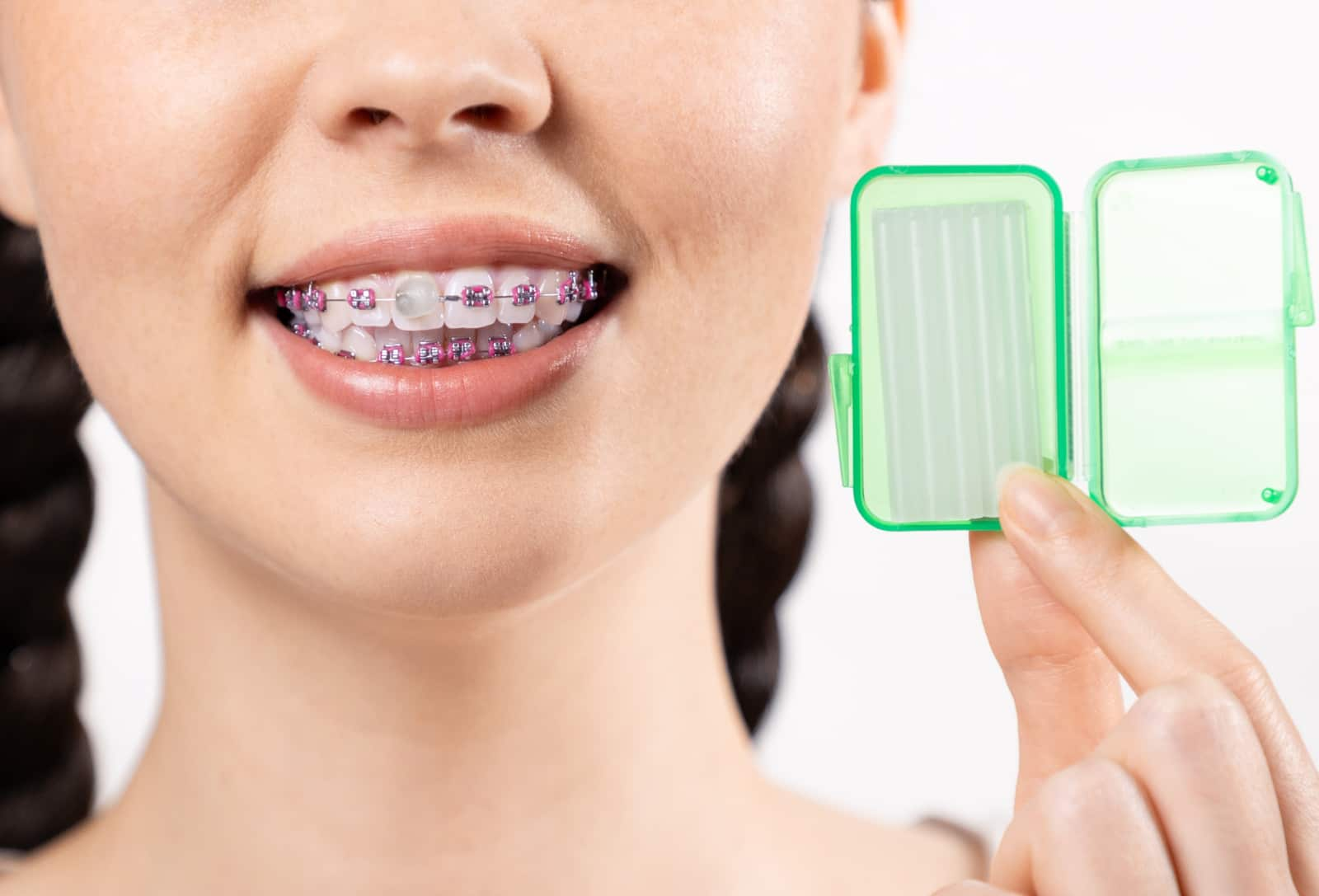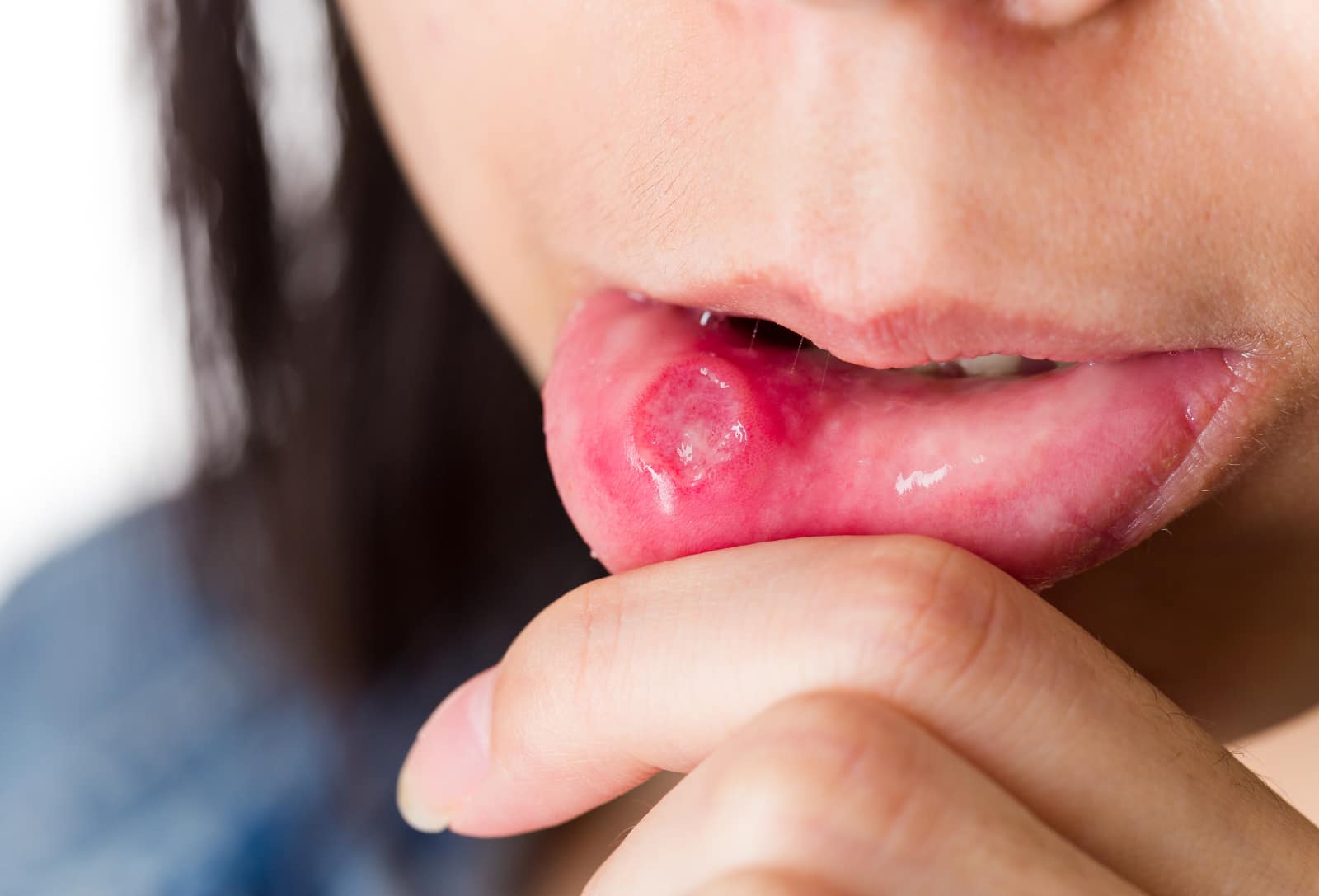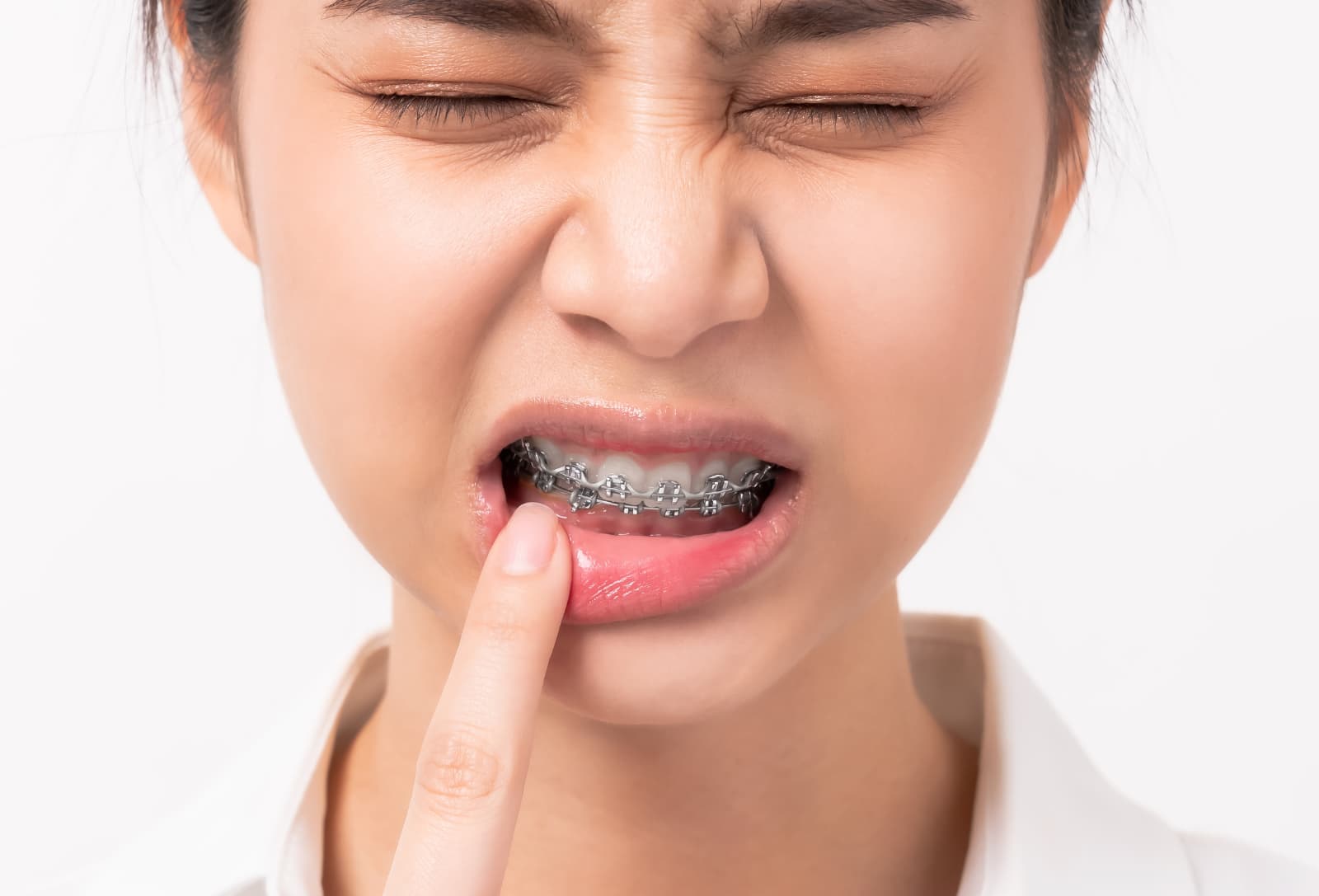TEETH - STRAIGHTENING TREATMENT
SERVICES
RESOURCES
SHOP
MEDICAL CERTIFICATIONS
Certifications ensuring safety, quality, and compliance with global standards.
Certifications ensuring safety, quality, and compliance with global standards.
Getting braces is an exciting step toward a better smile, but let’s be honest, the first few days can be uncomfortable. Many people experience soreness, mouth ulcers, or even blisters in the mouth after their brackets are fitted or tightened. The good news? These side effects are temporary and can be managed easily with the right care.
Here’s everything you need to know about why braces hurt, how long the soreness lasts, and how to reduce the pain effectively.
When your orthodontist tightens the wires or fits your braces for the first time, gentle pressure is applied to move your teeth into position. This pressure triggers your teeth and gums to adjust, and that’s what causes the soreness from the braces.
It’s completely normal to feel tenderness in your teeth or mild irritation inside your mouth for a few days. The metal brackets and wires may also rub against your cheeks or lips, leading to mouth sores or ulcers.
The discomfort usually peaks within the first 2 to 3 days after getting your braces or following each adjustment. Most people notice significant relief within a week as their mouth adjusts to the pressure.
If you still feel braces hurting your teeth after 7–10 days, it’s a good idea to check in with your orthodontist to ensure nothing is out of place.

Here are simple yet effective ways to ease braces pain and reduce mouth irritation:
Apply orthodontic wax over brackets that rub against your cheeks or gums. This creates a smooth barrier and prevents friction that can cause blisters or ulcers in the mouth from braces.
A warm saltwater rinse helps heal mouth ulcers and disinfect sore areas. Mix half a teaspoon of salt in a glass of warm water and rinse gently twice a day.
Stick to soft foods like mashed potatoes, smoothies, or porridge during the first few days. Avoid crunchy or sticky foods that can make soreness worse.
Cold helps numb sore areas and reduce swelling. Try sipping cold water or placing an ice pack near your cheeks to soothe braces pain.
If the pain becomes distracting, mild over-the-counter pain relievers (as advised by your dentist) can help. Avoid applying aspirin directly to gums as it can irritate soft tissue.

Mouth ulcers are one of the most common side effects when you first get braces. The brackets and wires create friction as your mouth adjusts.
To speed up healing:
With good care, these mouth sores from braces usually heal within 3–5 days.
While mild soreness is normal, you should contact your orthodontist if:
Your orthodontist can make small adjustments or trim wires to relieve the pressure.
Feeling discomfort after braces is a sign that your teeth are moving, and that means your treatment is working. Stay consistent with your orthodontist’s instructions, maintain good oral hygiene, and be gentle with your mouth for the first week after adjustments.
If you find the constant pain or mouth ulcers difficult to manage, ask your dentist about clear aligners, a more comfortable, removable alternative that doesn’t cause wire or bracket irritation.
With the right care and guidance from your orthodontist, your discomfort will ease, and every small adjustment brings you closer to the confident smile you’ve been waiting for.
Get a smile consultation today to explore more about your teeth straightening options and begin your smile improvement journey.
Brushing your teeth while wearing braces is a bit more challenging than brushing natural teeth alone, but it’s essential for ...
3 February 2026
What Is a Bridge for Dental Treatment? Missing teeth can affect more than just your appearance. They may affect ...
26 January 2026
Flossing is one of the most important (and most skipped) parts of oral hygiene. Many people brush twice a day ...
5 January 2026
What Is Plaque on Teeth? Dental plaque is a soft, sticky film that constantly forms on your teeth. It is ...
22 December 2025
What Is a Gummy Smile? A gummy smile happens when more of the upper gums show than usual when you ...
15 December 2025

